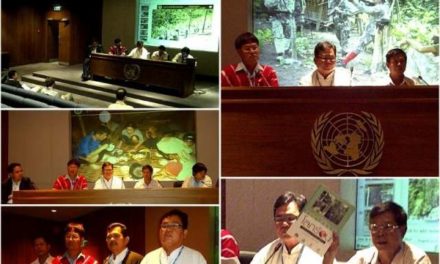After 11 full days of intense negotiations, the 20th Conference of the Parties to the United Nations Framework Convention on Climate Change (COP20) held in Lima, Peru ended last week with proposals deemed too weak by climate campaigners. The results, which lock us into a disastrous global temperature rise of at least 3-4°C, do not merely show a lack of progress in the talks, but also prove that the convention cannot offer the right solutions to the millions of people already affected by climate change, such as those in the Philippines and vulnerable small island states. The process, in its current state, does not and will not offer appropriate actions for those who will be affected in the future: the whole planet.
Lima set the agenda for next year’s COP21 in Paris, where a new climate change agreement is supposed to be finalized. In Lima, much like at the previous talks in Warsaw, rich countries and polluting industries dominated the agenda, weakening the process by completely dismissing the needs of developing countries and those already suffering from droughts, floods, rising sea levels, hotter temperatures and other disasters caused by climate change. They blocked the path for energy transformation by preserving the role for climate-frying fossil fuels in energy production.
Before the Lima talks, two global events already generated deep concerns for many in civil society and developing country governments: the special UN Climate Summit held in September in New York met with a 400,000-strong people’s march; and the US-China deal on a new emissions-reduction timetable announced in November.
The Climate Summit gave an even bigger role to so-called market solutions, despite overwhelming proof of the gargantuan discrepancy between what is needed: rich country commitments for ambitious emissions reductions and financial and technology assistance to developing countries to alleviate the social, economic and ecological impacts of climate catastrophe. Despite major fiascos by the main carbon trading schemes in the EU and the US, it’s business as usual for carbon traders, who continue to earn profits while the planet increasingly warms.
The UN process has sadly been captured by and largely subordinated to market mechanisms as supposed solutions to climate chaos. This is obvious in the big parallel meetings organized by business during the conferences and their increasing demand to have the same status as countries in the negotiations. Aggressive lobbying at the national level by supporters of “carbon capture and storage” and carbon markets grew even more between the Warsaw and Lima conferences. Business already strengthened its role at the four preceding conferences. Dominant industry actors co-presided or spoke on panels alongside the speakers from the UN Inter-government Panel on Climate Change and Christiana Figueres, the head of the UN climate body who herself is a former carbon trader. The much lauded bilateral deal between the world’s top emitters, the US and China, may have negative consequences too. Informed voices from civil society argued that the deal was neither ambitious nor historic, since the targets are dismal and in turn already set a lowered goal for Lima. Furthermore, it undermined multilateralism by drawing the world back to the idea that superpowers hold the solutions, rather than multilateral agreements based on common but differentiated responsibilities among countries to tackle climate change together.
Social movements and NGOs have long argued that the Global North has an “ecological debt” to the South and to the planet. They have exposed the false solutions offered by schemes like the Clean Development Mechanisms (CDM), Reducing Emission from Deforestation and Forest Degradation (REDD), carbon and pricing and now “climate smart agriculture.” These are just money-making schemes in disguise. To counter inaction from the UN and governments, people are now organizing locally, nationally and regionally to counter inaction from the UN and governments. Organizing for system change to address climate change is the way forward.
How many super typhoons and storm-related deaths does the world need to see? How many vulnerable communities need to be ejected from their homes, families dislocated with their land grabbed after each catastrophe? How much human suffering and environmental destruction before the message becomes clear that those who created and are now worsening the climate crisis should have no place at the climate negotiating table? Many of them are indeed in our national governments. When – and how – do we boot them out and keep them away from decision-making processes?
An edited version of this article was published in the Jakarta Post on December 16, 2014 and the Bangkok Post on December 19.








